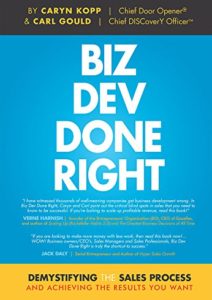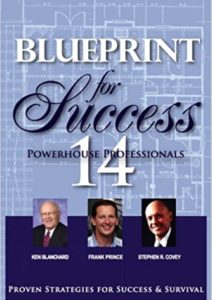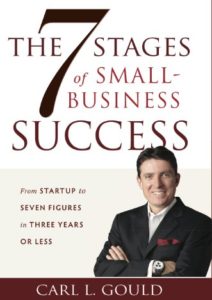There is a seven-stage business growth method that helps people maximize their efforts. Thus, in this Expert Insight Interview, Carl Gould discusses the seven stages of growing a business. Carl Gould is the CEO of 7 Stage Advisors, business growth strategist, author, speaker, and an award-winning coach.
The interview discusses:
- Early stages
- Stages of scale
- Salability and succession
- Common mistakes
Early Stages
The first stage is strategic planning, which means having a compelling business idea to put on paper. This step does not require complexity. You only have to identify where you are right now with the company, where you want to be in the future, and how to get there. In the second stage, you should choose your specialty – niche, and focus on becoming an expert in it. In an economy as volatile as it is today, people are willing to pay more if they believe that they are getting a higher value in return. In order to be considered an authority in your niche, you have to charge higher prices. For example, companies such as Apple or Tesla never offer discounts because they are confident that they provide higher value than competitors. The third is the synergy stage, in which you build a team that aligns with your mission, vision, and core values.
The Stages of Scale
In the next stage, you choose what kind of business model you want to have. Then, you systematize business processes, but just enough to stay flexible to make changes if needed. Timing is crucial here because you cannot move to the next stage without systematization. Next comes scalability, in which your company becomes known for something other than product or service, such as experience or convenience offered to customers. At that point, you start to scale your business.
Salability and Succession
The sixth stage is to maximize your salability by building a management team, going public with IPO, buying, selling, etc. And finally comes the succession stage. In this stage, you can leave the company’s day to day operations since you already have created a legacy.
Common Mistakes
Common mistakes that companies make are following the wrong vision or undercharging their products or services. Moreover, many companies do all the steps right but in the wrong sequence. A good exercise for that is to ask whether the company answers the five core market complaints. Usually, three or four of those complaints are not satisfied. Thus, by focusing on answering market complaints, we also make necessary updates within the company.
Our Host
John is the Amazon bestselling author of Winning the Battle for Sales: Lessons on Closing Every Deal from the World’s Greatest Military Victories and Social Upheaval: How to Win at Social Selling. A globally acknowledged Sales & Marketing thought leader, speaker, and strategist, he has conducted over 1500 video interviews of thought leaders for Sales POP! online sales magazine & YouTube Channel and for audio podcast channels where Sales POP! is rated in the top 2% of most popular shows out of 3,320,580 podcasts globally, ranked by Listen Score. He is CSMO at Pipeliner CRM. In his spare time, John is an avid Martial Artist.












Comments